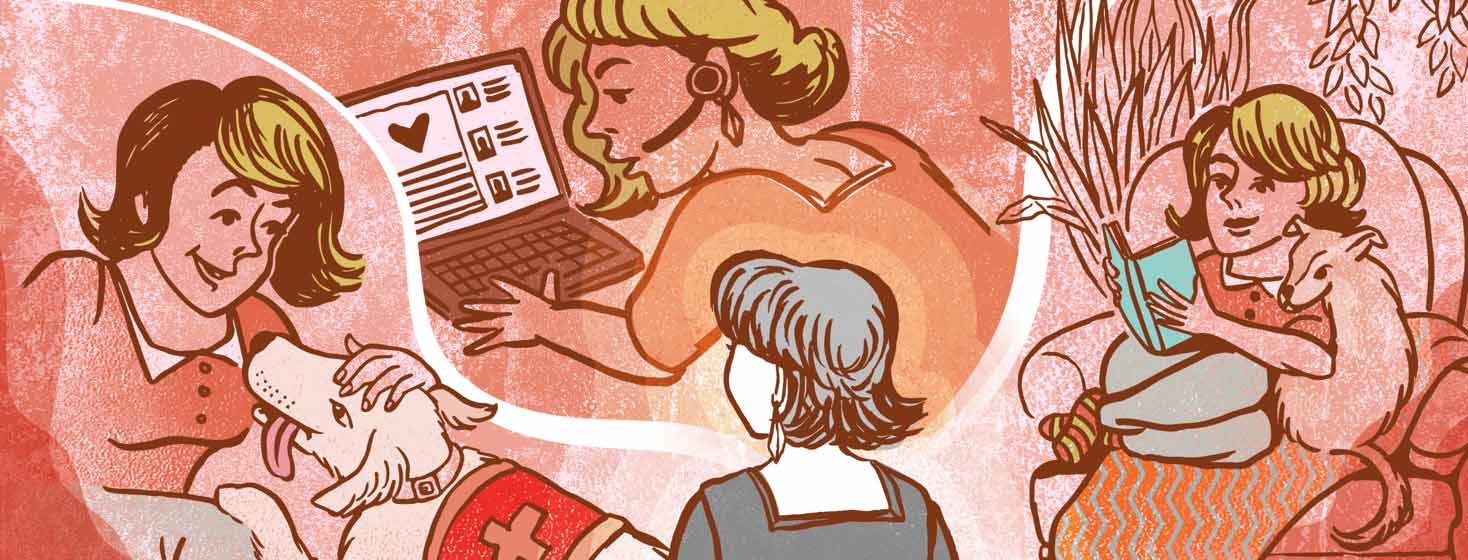The Younger Heart Failure Patient
I am 37 and was diagnosed with CHF at 35 after a severe heart attack.
My life changed
For context, overnight I went from working an adrenaline-filled full-time job in a position of authority, living in a lovely (yet high-maintenance) historic home, being active including exotic travel and dating to living at home with my parents, unemployed (the position was ‘eliminated’), limited activities due to fatigue, limited interest in dating (after a few failed attempts at explaining CHF I’m pooped), dashed hopes of biological children and certainly canceling fun dinners at the newest hot spot because a) I can’t drink and b) the salt is insane.
A much more simple life. While the feeling of immense loss is there for all heart failure patients, it is compounded when this happens to you as you are still building your life up. You’re not just losing your physical abilities, you lose your career, family, etc.
Finding my place
This loss is made worse when you look around and very few people look like me. Even when I go to cardiac rehab it’s almost comical. The first day I had to convince them I was in the right place. It’s a constant struggle finding my tribe when the majority of patients are 65 and older.
Case in point! On a FB group for CHF, a lady who looked on the younger end of things said that she was looking for activities for her hubby as he couldn’t do much and needed to do more than watch TV. The advice was knitting. Good advice yes, but given where I came from if someone told me I could now knit I’d be inclined to punch a wall! It’s like asking me my activity level – the litmus testing is the ability to walk around the block or the severity of my condition being judged against end-stage patients as opposed to the truly wonderful life I had. Everything is relative. Sigh.
Acceptance and advocacy
So, for people like myself who are outside of the bell-shaped curve, let’s first accept our feelings and not be afraid to advocate for ourselves. And any physician who is reading this please realize that younger patients may be experiencing a different kind of loss.
As far as activities to keep us sane, I think that is a very fair question and something I’ve struggled with. How do you fill your time and keep your sense of purpose when the old pillars of your life are gone? My ideas are below but if you have some of your own let’s start a dialogue!
Ideas for things to do
What about a dog? I met someone who has a service dog, and they are great for fetching things and companionship. They can be trained to retrieve meds, snacks, phone, and even answer the door. That way the limited energy you do have could be used for fun things. They are expensive so fundraising for it would be a task as well.
Any skills you have that you could work part-time on your computer? Do you have social media experience and could you help a small store with their FB, IG, and Twitter pages? Do you have accounting experience and could help a non-profit? I think you might also be able to do contract tracing from home.
Personally, I also started doing some dog sitting, which was great because I was able to make money by sitting on the couch with my friend’s dog(s)!
Any opportunity where your health issues are a plus is a real plus! Maybe you could help virtually with fundraising for the cardiac unit of your local hospital? My hospital even has mentorship opportunities.

Join the conversation